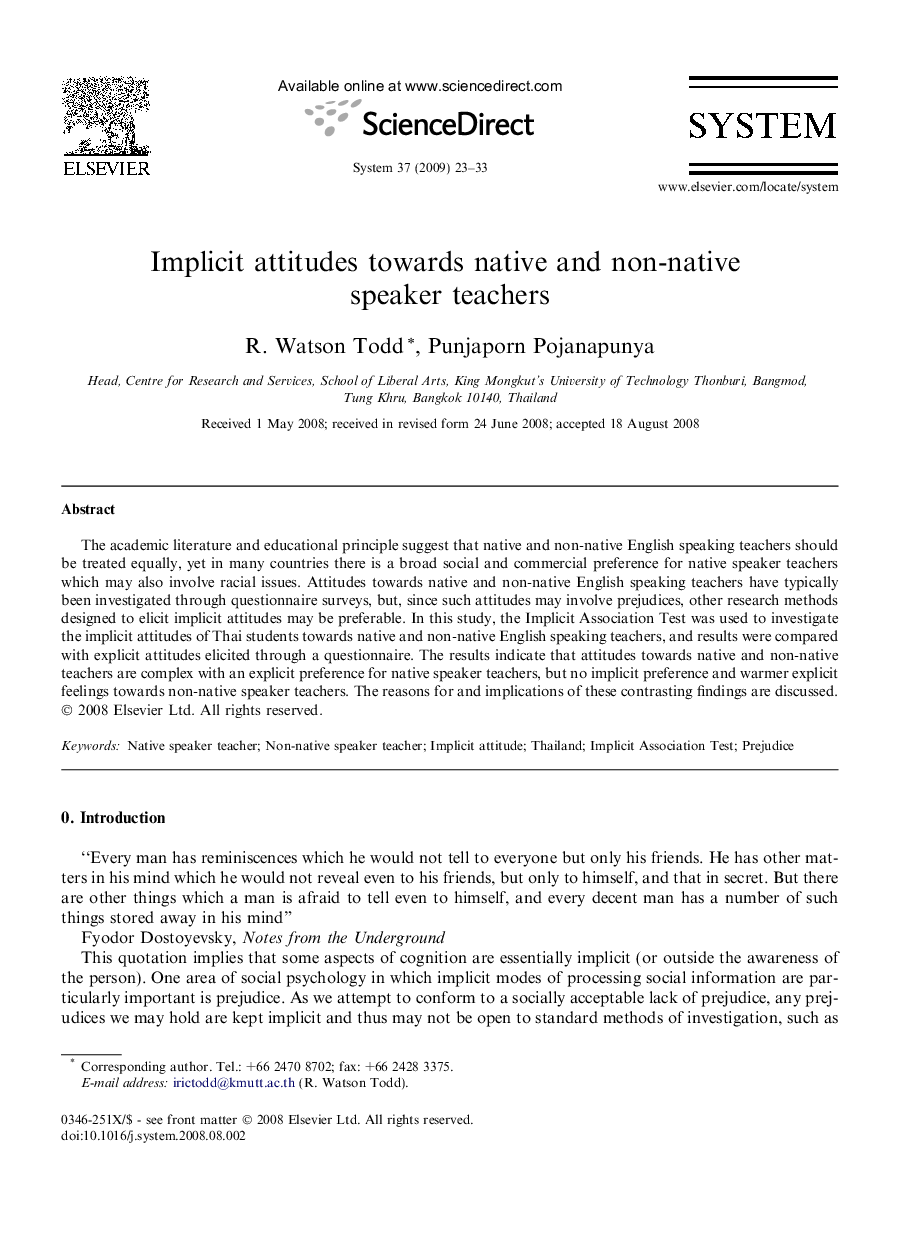| Article ID | Journal | Published Year | Pages | File Type |
|---|---|---|---|---|
| 373717 | System | 2009 | 11 Pages |
The academic literature and educational principle suggest that native and non-native English speaking teachers should be treated equally, yet in many countries there is a broad social and commercial preference for native speaker teachers which may also involve racial issues. Attitudes towards native and non-native English speaking teachers have typically been investigated through questionnaire surveys, but, since such attitudes may involve prejudices, other research methods designed to elicit implicit attitudes may be preferable. In this study, the Implicit Association Test was used to investigate the implicit attitudes of Thai students towards native and non-native English speaking teachers, and results were compared with explicit attitudes elicited through a questionnaire. The results indicate that attitudes towards native and non-native teachers are complex with an explicit preference for native speaker teachers, but no implicit preference and warmer explicit feelings towards non-native speaker teachers. The reasons for and implications of these contrasting findings are discussed.
